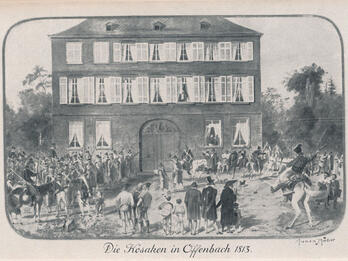Mor u-ketsiyah (Myrrh and Cassia)
Section 493
In times of emergency, all types of kitniyot (legumes, pulses) may certainly be permitted to be eaten during Passover, for even our Master, the Ba‘al Ha-Turim [Rabbenu Jacob, son of Asher], who was an Ashkenazi, and in whose times the custom of adopting this stringency had already commenced, did not care about it, and indeed wrote: “It is an excessive stringency, which the public have not adopted as a custom”—from which it may be inferred that our Ashkenazic ancestors of blessed memory had not accepted it in his days, and it was not widespread amongst them; several halakhic decisors regard it as nonsense and an erroneous custom. [ . . . ] This conclusion is compelling from an edited Gemara. [ . . . ] I can testify concerning my revered father—may the name of the righteous be for a blessing—how much anguish that righteous man suffered in regard to this; throughout the entire festival of Passover, he used to complain and say: “If I had the power to do so, I would abolish this inferior custom, which is a stringency resulting in an undue leniency, and from which ruin, and a stumbling-block, can arise, in relation to the prohibition of eating fully fledged leaven; for since the various types of pulses are not now available to the masses to eat and to satiate themselves with, they need to bake a large quantity of unleavened bread; the poor in particular, as well as those who have large households, where even an abundance of cooked foodstuffs will be insufficient to subdue their pangs of hunger, will be compelled, against their wishes, to provide sufficient quantities of unleavened bread for the members of their households, and the revival of their empty bellies. As a result of this, they are not scrupulous in regard to the dough, as is befitting and obligatory. [ . . . ] It is thus likely that they will stumble into a prohibition entailing the penalty of karet [divine excision]—Heaven forbid! Furthermore, the unleavened bread is expensive for them, and not everyone has the wherewithal to make it in sufficient quantities for the members of his household—and indeed they do not manage to find sufficient amounts even of leavened bread to satisfy their hunger throughout all the rest of the year, while pulses are readily available at cheap prices without any trouble, and they are permissible as Passover food; moreover, such folk will thereby end up being deprived of the joy associated with the festival by virtue of a stringency possessing neither pleasant taste nor aroma. Therefore, I maintain, the righteous man should happily hold on to his path; he should provide food plentifully for others and dash the preposterous claims of such bizarre stringencies against the rocks.
Credits
Published in: The Posen Library of Jewish Culture and Civilization, vol. 6.



